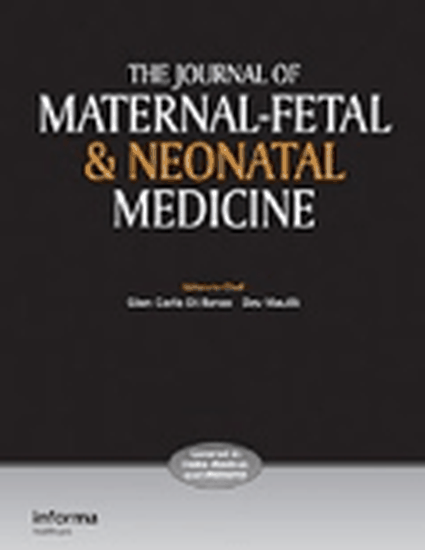
Article
Metabolomic identification of placental alterations in fetal growth restriction
The journal of maternal-fetal & neonatal medicine : the official journal of the European Association of Perinatal Medicine, the Federation of Asia and Oceania Perinatal Societies, the International Society of Perinatal Obstetricians
(2022)
Abstract
Introduction: Fetal growth restriction (FGR), viz., birth weight <10th percentile is a common pregnancy complication which increases the risk of adverse fetal and newborn outcomes. The placenta is the key organ for fetal growth as it controls oxygen and nutrient availability. This study aims to elucidate the mechanisms of and identify putative placental biomarkers for FGR using high-resolution metabolomics.
Methods: Placenta samples from 19 FGR cases and 30 controls were analyzed using proton magnetic resonance (1H NMR) spectroscopy and direct flow injection mass spectrometry with reverse-phase liquid-chromatography mass spectrometry (DI-LC-MS/MS). Significant concentration differences (p-value <.05) in 179 of the 220 metabolites were measured.
Results: Of the 179 metabolites, 176 (98.3%) had reduced placental levels in FGR cases. The best performing metabolite model: 3-hydroxybutyrate, glycine and PCaaC42:0 achieved an AUC (95% CI) = 0.912 (0.814-1.000) with a sensitivity of 86.7% and specificity of 84.2% for FGR detection. Metabolite set enrichment analysis (MSEA) revealed significant (p < .05) perturbation of multiple placental metabolite pathways including urea metabolism, ammonia recycling, porphyrin metabolism, bile acid biosynthesis, galactose metabolism and perturbed protein biosynthesis.
Conclusion: The placental metabolic pathway analysis revealed abnormalities that are consistent with fetal hepatic dysfunction in FGR. Near global reduction of metabolite concentrations was found in the placenta from FGR cases and metabolites demonstrated excellent diagnostic accuracy for FGR detection.
Keywords
- Biomarkers,
- fetal growth restriction,
- metabolites,
- placenta,
- targeted metabolomics
Disciplines
Publication Date
February, 2022
DOI
10.1080/14767058.2020.1722632
Citation Information
Bahado-Singh RO, Turkoglu O, Yilmaz A, Kumar P, Zeb A, Konda S, Sherman E, et al. Metabolomic identification of placental alterations in fetal growth restriction. J Matern Fetal Neonatal Med. 2022 Feb;35(3):447-456. doi: 10.1080/14767058.2020.1722632. PMID: 32041426
